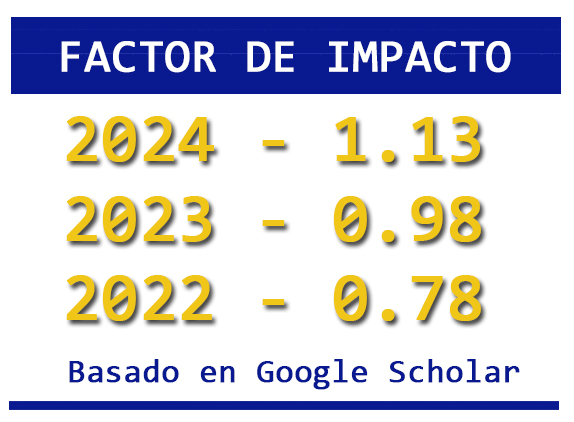Desing of a PMO based on PMI applied in a Chilean university
DOI:
https://doi.org/10.36790/epistemus.v12i25.86Keywords:
PMO, Intellectual Capital Management, Strategic Management, Organizational Maturity Models in Project Management, Portfolio Management and Programs Management, Portfolio Management, Programs ManagementAbstract
This article synthesizes the design of a PMO based on the PMI standard for project management. Firstly, an adaptation of the strategic plan for the Vallenar Headquarters is made, and then, using the organizational maturity model, it is possible to recommend an appropriate PMO to be designed, which aims to improve the practices in the direction of projects by generating consulting initiatives, training and support to the members of the organization to initially reach a level of common language in project management. To carry out this task, the design of the PMO is based on the implementation of the organizational strategy through portfolio management, aligning the projects with the institutional strategy and the materialization of the organizational policies through the management of programs that will group the projects generated in the Vallenar Headquarters of the University of Atacama. Finally, the result is a level of maturity below level 1, recommending...
Downloads
References
Alvarado, L. (2004). Gestión estratégica en el siglo XXI. Antofagasta, Chile: Universidad Católica del Norte
Kerzner, H. (2001). Strategic planning for Project management using a project management naturity model.United States of America: Jhon Wiley & Sons, Inc.
Kerzner, H. (2003). Strategic Planning For A Project Office. Project Management Journal, 2(34), 13-25 DOI: https://doi.org/10.1177/875697280303400203
Nonaka, I., & Takeuchi, H. (1995). The Knowledge-creating Company: How Japanese Companies Create the Dynamics of Innovation. (O. U. Press, Ed.) DOI: https://doi.org/10.1016/0024-6301(96)81509-3
Porter, M. (1985). The Competitive Advantage: Creating and Sustaininng Superior Performance. NY: Free Press.
Project Management Institute. (2017). Fundamentos para la dirección de proyectos (Guía PMBOK).
Newtown Square, Pensilvania EE.UU: Project Management Institute, Inc.
Schlichter, J. (1999). Surveying Project Management Capabilities. PM Network, 4(13), 39–40.
Shaw, E. (1999). A guide to the qualitative research process: evidence from a small firm study. Qualitative Market Research: An International Journal, 2(2), 59-70 DOI: https://doi.org/10.1108/13522759910269973
Toledo Perez de Arce, E. (2017). Diseño de una PMO basada en el estándar PMI para la gestión de proyectos en la sede Vallenar de la Universidad de Atacama, Chile. (Tesis para optar al grado de Magister en Gestión Integral de Proyectos). Universidad Católica del Norte.
Universidad de Atacama. (2007). Modelo Educativo de la Universidad de Atacama. Copiapó.
Universidad de Atacama Dirección de Planificación. (2014). Plan de Desarrollo Estratégico 2015-2019. Copiapó.
Yin, R. K. (1994). Case study research: design and methods.Thousand Oaks, London, New Delhi : Sage Publications, 1994.
Yin, R. K. (2003). Case Study Research: Design and Methods(Third Edition ed.). Sage, 2003
Downloads
Published
How to Cite
Issue
Section
License

This work is licensed under a Creative Commons Attribution-NonCommercial-NoDerivatives 4.0 International License.
The magazine acquires the patrimonial rights of the articles only for diffusion without any purpose of profit, without diminishing the own rights of authorship.
The authors are the legitimate owners of the intellectual property rights of their respective articles, and in such quality, by sending their texts they express their desire to collaborate with the Epistemus Magazine, published biannually by the University of Sonora.
Therefore, freely, voluntarily and free of charge, once accepted the article for publication, they give their rights to the University of Sonora for the University of Sonora to edit, publish, distribute and make available through intranets, Internet or CD said work, without any limitation of form or time, as long as it is non-profit and with the express obligation to respect and mention the credit that corresponds to the authors in any use that is made of it.
It is understood that this authorization is not an assignment or transmission of any of your economic rights in favor of the said institution. The University of Sonora guarantees the right to reproduce the contribution by any means in which you are the author, subject to the credit being granted corresponding to the original publication of the contribution in Epistemus.
Unless otherwise indicated, all the contents of the electronic edition are distributed under a license for use and Creative Commons — Attribution-NonCommercial-ShareAlike 4.0 International — (CC BY-NC-SA 4.0) You can consult here the informative version and the legal text of the license. This circumstance must be expressly stated in this way when necessary.
The names and email addresses entered in this journal will be used exclusively for the purposes established in it and will not be provided to third parties or for their use for other purposes.
























